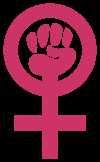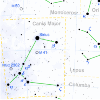 First held in 1902 as part of the celebration for the coronation of Edward VII and Queen Alexandra, the Battle of Flowers takes place on Jersey in the British Channel Islands every August. It begins with a parade of floats covered in flowers, many of which are quite elaborate and take months to prepare. Spectators no longer engage in a flower-throwing melee after the parade—these days the “battle” consists of a competition for the finest floats. A moonlight parade Friday night displays the floats with their illuminations and concludes with a fireworks finale. Discuss
First held in 1902 as part of the celebration for the coronation of Edward VII and Queen Alexandra, the Battle of Flowers takes place on Jersey in the British Channel Islands every August. It begins with a parade of floats covered in flowers, many of which are quite elaborate and take months to prepare. Spectators no longer engage in a flower-throwing melee after the parade—these days the “battle” consists of a competition for the finest floats. A moonlight parade Friday night displays the floats with their illuminations and concludes with a fireworks finale. Discuss
Source: The Free Dictionary
 Independence Day, or National Day, in
Independence Day, or National Day, in  On August 9, 1956, a protest march was held at the
On August 9, 1956, a protest march was held at the  V-J Day (Victory over Japan Day) commemorates the anniversary of
V-J Day (Victory over Japan Day) commemorates the anniversary of  During the 19th century, a large Irish immigrant population settled throughout the United States. One enclave established north of Columbus, Ohio, took the name of the capital of Ireland. In 1987, the first Dublin Irish Festival was held to commemorate the city’s rich heritage. One of the festival’s main events is the Columbus
During the 19th century, a large Irish immigrant population settled throughout the United States. One enclave established north of Columbus, Ohio, took the name of the capital of Ireland. In 1987, the first Dublin Irish Festival was held to commemorate the city’s rich heritage. One of the festival’s main events is the Columbus  As described in the first three
As described in the first three  On this date in 1995, the Croatian Army defeated Serbian forces at the city of
On this date in 1995, the Croatian Army defeated Serbian forces at the city of  The Dog Days are known as the hottest days of the year in the
The Dog Days are known as the hottest days of the year in the 
.svg.png) This nationwide celebration of the
This nationwide celebration of the